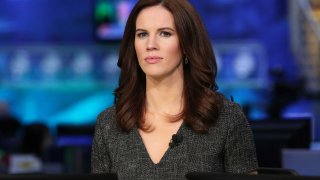
Kelly Evans: China Cracks Down
If you had told me back in 2015 that we'd have driverless cars on the roadways this year, I'd have thought you were insane. That was the year I wrote about the "mushy middle" problem of automation for CNBC. And while some might argue the events of recent weeks prove just how problematic this transition will be, I now believe it will not only happen, but happen very quickly.
Perhaps most telling is actually how little national attention is being paid to the major, transformative developments in automation lately. Again, if you told me Tesla was just going to start rolling out driverless technology nationwide, I'd have bet it would be the single biggest news story for weeks at a time. Instead, it's barely made a ripple in the news cycle. The biggest Tesla story right now is Elon Musk's Twitter poll about selling some of his shares.
Watch NBC6 free wherever you are
I think part of that is because Tesla and its aficionados use the rather wonky-sounding term "FSD" (Full Self-Driving) to refer to the technology. Then there are the software releases, or betas, that are continually being updated. So when you hear "Beta 10.4" or "Beta 10.3.1," it's just referring to which version of self-driving software is being used. And all of this is software that's being dropped to existing Tesla cars that bought the pricey hardware package to support it. So it's not like we have a raft of obvious new "self-driving cars" on the roadways; the cars already existed, and now just have new self-driving technology, which few other drivers may even realize.
And Musk himself is rather cleverly generating so much other Tesla news that the FSD stuff gets drowned out. The rollout also started very small; by some estimates there are only around 220,000 Teslas on the road that even have the hardware to support full self-driving. And the first rollout, in early October, went to only those drivers who opted in and earned a perfect "100" safety score in the days leading up to the software release--a number that could be in the low hundreds.
Get local news you need to know to start your day with NBC 6's News Headlines newsletter.
The rollout has gradually been widening to drivers with safety scores of 99, and so on. So for the past month or so, across the country, there have been Tesla cars driving themselves around--with drivers at the ready to take the wheel whenever they start veering too far into other lanes, or making scary left turns. "It's both amazing, and occasionally terrifying," is how one Tesla podcaster recently described his experience as a passenger. Again, I never would have thought this would all be happening.
There will be absolutely be public reckonings with this technology; most likely, when tragedy strikes. But it's not just Tesla that is out there leading the charge. In late September, the California DMV cleared the way for self-driving taxis. Cruise, backed by GM, was given a "driverless deployment permit"--and last Tuesday night, at 11 p.m., one of their driverless robotaxis officially hit the streets of San Francisco. One of the passengers, Cruise cofounder Kyle Vogt, recounted the whole experience the next day on Twitter.
So the moment has arrived. Self-driving cars are here. And I don't think there's going to be any stopping them now. The progress will be uneven, but much like crypto (or even Uber), it will probably become widespread and ingrained before regulators make any real effort to stop it, and by then it will be too late. Indeed, the real story is that regulators are allowing this all to take place; the hope has always been that this will dramatically reduce the more than 30,000 Americans who die (and more than two million who are injured) in traffic crashes every year.
Money Report
There are obvious investing implications; this will someday be a cash gusher for Cruise, Waymo, Tesla, and any other car that can collect money for making deliveries, giving rides, and so forth. There are much deeper societal changes that we will no doubt spill plenty of ink over in the next couple decades. And there are plenty of near-term execution risks. But still, it's worth emphasizing--self-driving cars are here to stay.
See you at 1 p.m!
Kelly

